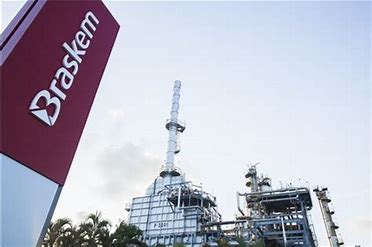Stocks of the two giants have the largest share since 2014
10/14/2022
/i.s3.glbimg.com/v1/AUTH_37554604729d4b2f9f3eb9ad8a691345/internal_photos/bs/2022/2/B/b5XmeNTPKG00Nn0htteQ/14fin-100-vale-c6-img01.jpg)
On Thursday, Vale ON represented 15.448% of Ibovespa’s theoretical portfolio, while Petrobras PN accounted for 6.966% — Foto: Divulgação
In every four trades carried out in B3’s stock market in October, at least one involved Vale’s common shares or Petrobras’ preferred stock. It is the first time that the two heaviest assets of the stock exchange reach the level of 25% of market turnover since 2014, when it was at 25.16%, according to a TradeMap’s survey made at Valor’s request.
Even with the slowdown of the global economy and mounting fear of recession, which generate uncertainty for commodities, the increase in the participation of international investors in the local market in recent months helps to explain the movement. This is because the group usually prioritizes securities with more liquidity, like the two commodity producers and big banks. On Thursday, Vale ON represented 15.448% of Ibovespa’s theoretical portfolio, while Petrobras PN accounted for 6.966%.
Specific factors impacted the appetite for shares. The oil company reacted well to the result of the first round of Brazil’s presidential election, with a tight dispute and the election of a more conservative Congress, which in theory favors a privatization drive. The mining company had a negative performance after becoming the target of Cosan, which acquired up to 6.5% of its shares.
Gabriela Joubert, Inter’s chief analyst, says that in October foreign investors have once again shown a greater preference for the Brazilian stock market due to the momentum of the local economy compared to developed and emerging countries. “Developed countries are starting or in the middle of a cycle of interest rate hikes, while there is already a discussion about cuts here,” she said. “And emerging countries, especially China and Russia, are going through particular difficulties and global problems.”
Ms. Joubert says the macro panorama already helps the Brazilian stock market and, when foreign investors look at Brazil, there is a preference for companies like Vale and Petrobras. Her perspective for the future is that foreigners will continue to see attractiveness in B3.
Along these lines, this month, foreign investors made a net contribution of R$1.2 billion in shares listed on B3 by October 10. This year, international investors have invested R$71.26 billion. In the same period, local institutional investors withdrew R$105.06 billion, and individual investors took R$2.44 billion out of the market.
But despite the high turnover involving the two securities, their performances tell different stories. Vale, which is down 6.83% this year and had already been depreciating in recent months with the slowdown of the Chinese economy, suffered an additional blow after Cosan unveiled that it is buying up to 6.5% of the mining company’s shares, in an offensive that part of the market saw as the first step in an attempt to take control of the largest company on the stock exchange.
“There was a strong correction in the stock, to R$62 in September from a level above R$100 in March, following the uncertainties in China. With this, the positioning was low, and some asset management companies were short on the security, which boosted some purchases. But at the beginning of last week, this dynamic got stronger and the rumors that something was happening started,” said Antonio Heluany, a partner and a commodities analyst at Taruá Capital.
He understands that, thinking in longer terms, Cosan’s incursion into Vale is positive. In his vision, the mining company will be able to benefit from the presence of an executive “with an industry head” in its board, helping the company to have a direction for the future beyond the distribution of dividends in the market.
However, he points out that the investors’ disappointment may have come after frustrated speculation regarding the increase in the securities’ turnover. “As the company was already looking to unlock value from the base metals business, a move in this direction could have had a greater impact. Cosan’s entry, on the other hand, is not an event that gets the securities moving in the short term.” At the moment, Taruá is exposed to Petrobras, but not to Vale.
Inácio Ponchet, CEO and manager of Lato Capital, also cites concerns with the current level of iron ore. He says he still doesn’t like the signals from the Chinese economy and also shows concern with the European scenario, since the production capacity has been reduced by 50 million tonnes due to the energy crisis.
“Nobody knows how Europe will come back from the crisis. However much the price of gas recedes, it won’t necessarily return to the level of when the continent had the subsidized Russian product. And I don’t see China’s economy coming back fast either, so ore may remain under pressure. Oil, on the other hand, seems a little more protected because of the supply restriction,” he said.
Petrobras preferred stock is up 74.08% in 2022, the third-best performance at Ibovespa. There was a further gain in October after the result of the first round of elections pointed to a tight race for the presidency and a more right-wing Congress, in theory less inclined to state intervention in the economy and state-owned companies.
“Foreign investors seem more relaxed than local investors about the outcome of the election, but we can certainly have impacts on Petrobras. I understand that in case Bolsonaro wins Petrobras is the cheapest company on the stock exchange, with great chances of appreciation. If Lula (Workers’ Party, PT) is elected, I understand that there will be a waiting period until the announcement of the new CEO of the company and the details of its investment plans,” said Mr. Ponchet. The manager has, through the index, a position in both companies.
Mário Braga, an analyst at Control Risks, says that a potential Lula da Silva administration is likely to adopt a pragmatic posture in relation to the business environment and try to move forward with structural reforms in 2023, especially a tax reform. It should focus on simplifying the system, but come with more taxes on the richest and possibly on some sectors, such as mining and oil & gas.
“To compensate for the potential loss of revenue, the government will probably seek the introduction of taxes on dividends and wealth. Considering a broader green agenda, the reform is likely to also favor eco-friendly industries or products, such as renewable power or electric cars,” says Mr. Braga.
“There will probably be an appetite to raise taxes [and royalties] for the mining sector. It is unlikely, though not impossible, that the next government will take a similar approach to the oil and gas sector and resort to a tax to cushion price shocks as well. As long as the global markets for metal commodities and energy remain strong globally, companies in these sectors in Brazil will remain more exposed to risks of tax increases,” he added.
(Álvaro Campos contributed to this story.)
*By Matheus Prado, Augusto Decker — São Paulo
Source: Valor International

/i.s3.glbimg.com/v1/AUTH_37554604729d4b2f9f3eb9ad8a691345/internal_photos/bs/2022/w/M/BuCRITTiyxVtpAw5fI5Q/14emp-100-apple-b7-img01.jpg)
/i.s3.glbimg.com/v1/AUTH_37554604729d4b2f9f3eb9ad8a691345/internal_photos/bs/2022/i/H/5881eUThGJnrro1YVKeA/14agr-100-floresta-b10-img01.jpg)
/i.s3.glbimg.com/v1/AUTH_37554604729d4b2f9f3eb9ad8a691345/internal_photos/bs/2022/h/W/k9VA93RYKuBHrFtvFATA/24bra-100-bmacro-a4-img02.jpg)



/i.s3.glbimg.com/v1/AUTH_37554604729d4b2f9f3eb9ad8a691345/internal_photos/bs/2021/b/B/BNE4NpQIqvxfSq57ZbAA/22emp-100-bala-b1-img01.jpg)
/i.s3.glbimg.com/v1/AUTH_37554604729d4b2f9f3eb9ad8a691345/internal_photos/bs/2022/a/q/emRzBtRoidrrzYMseFzw/vitale.jpg)
/i.s3.glbimg.com/v1/AUTH_37554604729d4b2f9f3eb9ad8a691345/internal_photos/bs/2022/F/k/xHiBvLTzAILLlCa4C4Aw/11agr-200-robo-b7-img01.jpg)